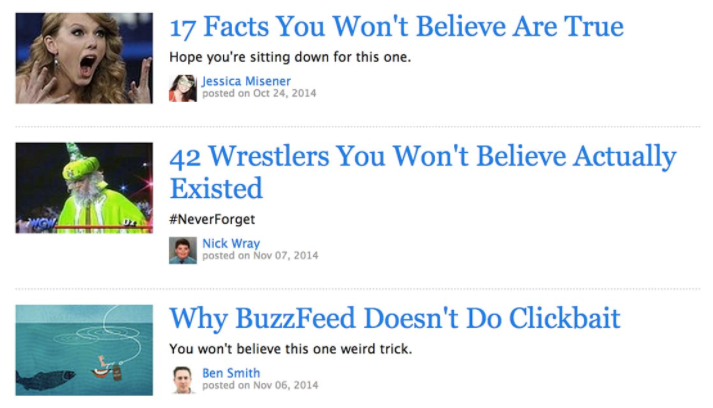Facebook has officially joined the fray to fight against fake news and has recently announced changes to the social media platform. Public relations professionals and social media specialists in particular, should be paying close attention since Facebook will be taking a microscope to the kind of language users employ when editing article headlines and leads. Posts using clickbait-y language will be lost to the black hole of Facebook’s mysterious algorithm and Facebook will no longer allow social media users to edit metadata when posting articles. That means no more changing headlines, descriptions, or images on articles.
The majority of users won’t see much of a change. But for PR and social media professionals this is a good chance to take a long look in the mirror. Clickbait articles employ cheap tricks to get users to engage with content. Sometimes they can be downright malicious and expose users to a whole host of nasty, but more often than not you’ll wind up with an article where what happens next doesn’t REALLY SHOCK YOU. They generate clicks, but the fact is, good social media strategy should never need to rely on exaggerated and sensational language to generate engagement.
The second change, not allowing adjustments to article headlines etc. is perhaps more significant. Who among us PR professionals can say we are entirely innocent of changing an article headline or two to emphasize our message? Editing metadata has been standard practice for repackaging and re-purposing articles depending on the audience that social media strategists are targeting. For example, a political article that targets both candidates in an election could have its headline edited to imply that one candidate is better/worse than the other. In this case, a social media strategist would be relying on the fact that most people don’t click on articles, let alone read them before believing, and even sharing the headline.
We must pay attention to this warning shot fired by Facebook and take stock. Facebook has publicly committed itself to changing and shaping the future of online behavior, particularly when it comes to online harassment and fake news. In the age of fake news, changes like this one are likely only the beginning and every one of us that abuses the platform will be putting a nail in our own coffin. Don’t misinform or misconstrue information. If you are lagging in terms of engagement numbers, consider using more graphics or GIFs, or hard-hitting headlines and intriguing leads to generate buzz.
If anything, this change is simply a reminder of what good public relations and social strategy means: finding your client’s actual advantage and angle no matter what. If we are good at telling stories, (and at Melwood, we are) there is no need to twist information beyond recognition.





